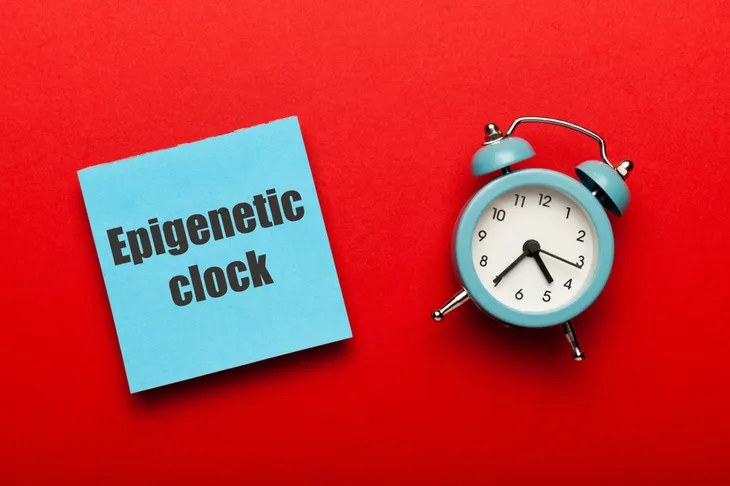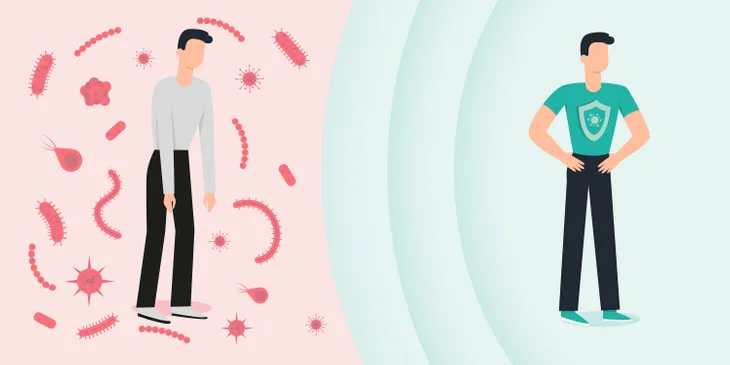If you were able to learn exactly how fast you’re aging, would you want to know the answer? Scientists are learning more about how our date of birth isn’t the only way to determine the stage of life we’re in. So much research has been done that you can now get an idea of what your biological age is using something called epigenetics.
So, what exactly is epigenetics? And how can they tell us whether we’re going to age well? Here’s a rundown of what you need to know. Plus, some tips on how you can better your chances of aging gracefully and healthily.
What Is Epigenetics?
Before diving into the nitty gritty of aging, you’ll need to know what epigenetic markers are. The Centers for Disease Control and Prevention (CDC) says “epigenetics is the study of how your behavior and environment can cause changes that affect the way your genes work.”
There’s also something called gene expression, which refers to how often or when proteins are created from the instructions within your genes. Epigenetics can turn certain genes “on” and “off”, thus playing a role in your overall health and aging process.
Epigenetics vs. DNA
Although epigenetics and DNA are closely related, they are not the same thing. An article published on WIRED says that DNA — the genes you’ve inherited from your parents — is fixed and cannot be changed. This biological factor can tell you how prone you are to certain health conditions.
On the other hand, epigenetics can change based on what you eat and what your lifestyle is like. This means that your diet, exercise, sleep schedule and other environmental factors can alter your epigenetics pattern.
What Researchers Discovered
Now you might be wondering, what do epigenetics have to do with how fast we’re aging? Steve Horvarth, a biostatistician at the University of California Los Angeles, has an answer.
According to WIRED, he developed the first epigenetic “clock” that measures specific epigenetic patterns linked to aging and disease. This allows them to compare the result against what’s normally expected from someone of your age.
How Aging Is Analyzed
When it comes to how fast you’re aging, it would be ideal for the results on the epigenetic clock to mark you as younger than your age. This might explain why some people feel younger than their actual age. For example, the epigenetic clock can reveal you’re a 50-year-old with the health qualities of a 40-year-old.
On the other hand, epigenetics could give you the opposite results showing you are aging faster. For instance, another 50-year-old could also be told they have the health of someone who is age 60. This is when you want to start making decisions that can change your epigenetic clock and slow down your body’s aging.
Your Epigenetics Can Be Changed
For better or worse, your epigenetics are not set in stone. Your pattern can change due to a number of factors in direct response to how you sleep, how much you eat, what substances you’re exposed to and more. WIRED says epigenetic patterns change “by altering gene activity, like a complex set of controls that turn genes up or down, on or off.”
Even a pregnant person’s epigenetics can be altered. Perhaps their diet has changed significantly or their behaviour has shifted, impacting their epigenetics for the long term. Their baby’s epigenetics can also change and potentially make them more likely to get certain diseases.
Factors Out of Your Control
Your epigenetics can be negatively impacted due to factors outside of your control. Essentially, things that you cannot control through behavior or environment. For example, the CDC says getting infections can change your epigenetics by weakening your immune system.
Some people also may have mutations that make you more likely to develop cancer. While it’s possible epigenetic changes can also increase your risk, mutations and inherent DNA that cannot be changed often detect one’s chances of getting cancer.
Epigenetic Testing
If you’re curious as to what you can learn about yourself through epigenetics, then you’re in luck. There are services that can do a biological age test with just a sample of your saliva and filling out a questionnaire.
One of those services is called Chronomics. It will determine three types of epigenetic changes, then suggest lifestyle and environmental changes to improve your health. The website says there are three types of epigenetic changes being looked at:
- Influential — Determines what a stem cell will eventually become.
- Dynamic — Giving a sense of current, previous and future health status.
- Actionable — Response to lifestyle and environmental factors that you can alter.
The Benefits of Epigenetic Testing
There are some worthwhile benefits to epigenetic testing. For starters, its findings can paint an overall picture of your health and give you scientific evidence on what you can do to improve it. If your epigenetic testing is in line with your current age or reflecting a younger demographic, then you know you’re doing something right.
Alternatively, epigenetic testing can put your health in perspective if its findings show that you’re biologically older. By learning your biological age and understanding why it is the way that it is, you can make smart changes to help slow down your biological aging.
The Reality of Epigenetics Testing
While getting epigenetics testing can be an interesting way to learn more about your biological age, it’s important for consumers to understand what they’re agreeing to. WIRED explains how epigenetic tests don’t need to be approved by the Food and Drug Administration. It also mentions its privacy policies might not consider epigenetics as sensitive personal data.
Further, those who choose to pursue epigenetic testing should be aware that what they’re paying for is a service. Don’t rely on these companies when it comes to health advice or disease preventative plans. You can use this to learn more about your body, but always consult your doctor when it comes to any and all health concerns.
Tips for Aging Well
As informative as they may be, you don’t necessarily need an epigenetics test to learn how to age gracefully. Doctors already know the best chances of living a long and healthy life consist of eating healthy, exercising regularly and taking care of yourself.
Here are easy ways to help you age gracefully:
- Wear sunscreen.
- Eat a balanced diet with fruits, vegetables, lean proteins and whole grains.
- Take care of your mental health.
- Exercise regularly
- Get seven to eight hours of sleep nightly.
- Drink lots of water.
- Lower stress levels.
- Quit smoking and limit alcohol consumption.
Habits That Make You Age Faster
In contrast, some habits may make you age faster and it’s important to be aware of these too. Smoking, binge drinking, eating heavily processed foods often, and leading a sedentary lifestyle are all examples of bad habits that may age you faster. But that’s not all!
Chronic stress, long work hours, and not getting enough sleep are contributors as well. If your habits don’t benefit your mind and body, then chances are they’re not helping you age well either.
Learn More About Epigenetics Online
It’s important to know that epigenetics is not a predictor of how long you will live, or a way to guarantee an increased lifespan. Unexpected accidents or health problems can occur and have an impact on your lifespan. Rather, epigenetics can simply be a way of learning whether or not you’re currently aging faster than the average person.
Epigenetics can encourage you to pursue a healthier lifestyle that includes a well balanced diet, regular exercise and staying away from high-risk environments. Keep up with what scientists are continuously learning about the power of epigenetics by searching online.















